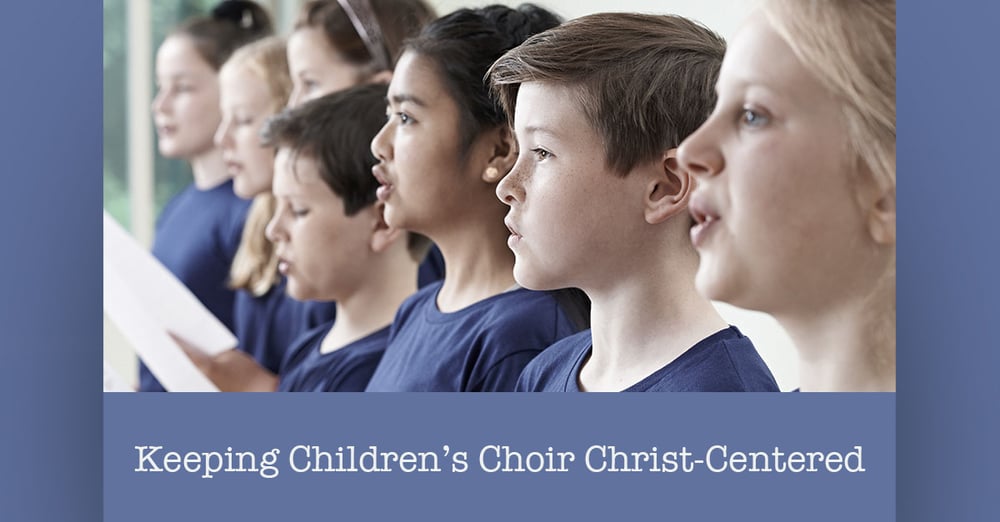This post is taken from Children Sing His Praise edited by Donald Rotermund.
Of all acts of corporate worship probably none is more inspiring than the singing of a well-trained, well-disciplined choir of children. To hear the pure voices of children produce freely floating tones in perfect unison or in harmony is one of the most uplifting of musical experiences. An even more spiritually profound impression is made if the song is an integral part of the theme of the day and if the singers actively participate in worship by listening, singing, and praying as full partners in the worshipping community.
The Problem with the Modern Approach
And yet singing and worship leadership of this kind are rare in the modern church.Children are often trained to participate in worship by singing only a single anthem with a “catchy” or “cute” setting of a childishly repetitive text. The accompaniment of the song may consist of “snappy” rhythms provided by piano, bells, or guitars. When the choir is not singing the anthem, the children often appear uninvolved in the actions related to worship and instead talk, doodle, fidget, or simply daydream. Hymns, lessons, congregational liturgy, Holy Baptism, or Holy Communion pass unobserved and thus are quite meaningless to the children.
Past vs. Present Approaches
The difference between the noble ideal of the first instance cited and the pathetic reality of the second is for many congregations primarily a matter of will. In the first example leadership of the congregation has determined that children are important members of God’s family, that their work in worship is significant, that they can make a worthy contribution to corporate worship, and that children are worthy of fine training. In the second instance children, perhaps by default, have been led to believe that they are not ready for active participation and that, while they may entertain adults at worship, more serious activity must wait for another time in their lives.
In order to understand how it is possible for children to worship actively in what some falsely view as an adult liturgy, it may be helpful to examine the theological relationships involved in children’s participation in worship.
Bringing Meaning Back into the Children’s Choir
The spiritual foundation for the work of the children’s choir consists of several components. The components are rooted in worship, for the primary task of the choir of children singing in church is to worship. Without the high purpose of worship, the choir is simply an organized activity for children that is educationally worthy and aesthetically satisfying or, at a more mundane level, merely enjoyable for the participants and their parents and entertaining for the other listeners. While there is nothing improper about either enjoyment or entertainment, both of these activities pale in ultimate worth when compared with the divine imperative of worship.
To fulfill its most noble and uplifting potential, the Christian children’s choir must be approached as an activity that focuses on the worship of almighty God as revealed in the person of Jesus Christ. This activity is conducted within the community of the faithful commonly called the congregation.












.jpg?width=50&height=50&name=IMG_20220621_160541_456%20(1).jpg)



